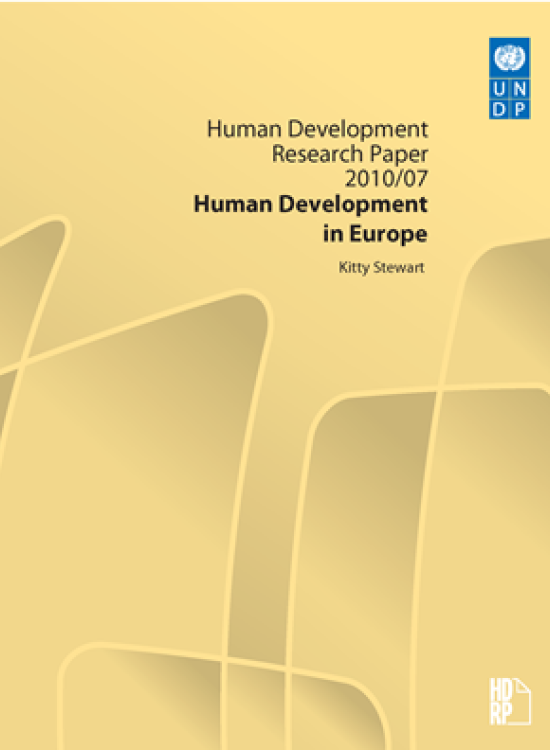Human Development in Europe

Download Report by Language
Document
hdrp201007.pdf
(949.67 KB)
Citation
Stewart, Kitty. 2010. Human Development in Europe. New York.
Human Development in Europe
Posted on: January 01, 2010
This paper examines levels and trends in human development in the 27 European Union Member States and four of the EU’s nearest neighbours (Iceland, Switzerland, Norway and Turkey). Its starting point is the UNDP Human Development Index but the paper goes beyond the HDI in three main ways. First, drawing on the Human Poverty Index, it sets countries more exacting standards for the three core elements of human development – income, health and education – by looking at progress for the bottom as well as trends in average national achievement, and by defining that progress in relation to national rather than global standards. Second, the paper provides evidence about disparities in human development on these core measures by population sub-groups (gender, geography, social class, ethnic background and migrant status). Third, the paper brings in wider aspects of human development. The three core elements might be thought of as giving people capabilities, but their ability to convert these capabilities into functionings (to lead happy and fulfilling lives, to exercise autonomy, to be active in social and political affairs) will depend not just on their individual characteristics but on the shape of the societies in which they live. The paper therefore looks at overall income equality, agency and empowerment in politics and in employment, social trust and environmental sustainability.

